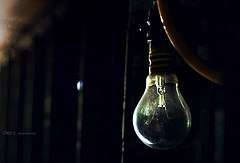The longer LED life span offered by LED lighting is one of the major attractions for many people.
Unlike conventional Halogen or Incandescent light bulbs, LED light bulbs will help rid the need for continued maintenance and the replacements of faulty light bulbs. As LED light bulbs do not rely on heating a delicate filament to produce light, they generally do not just stop working as you would expect a traditional light bulb to when it fails. Instead, LED light bulbs are said to have reached the end of their usable life when the light output drops below 70% of the original brightness offered when new. This is measured in lumens.
So what exactly does the life span of and LED light bulb mean? And how is it calculated?
What is the life span?
- The life span of an LED light bulb is said to be the amount of time the light bulb produces useful light.
- LED light bulbs suffer lumen depreciation over time and the light bulb will get gradually get dimmer.
- The life span is measured up until the lumen measurement depreciates under a certain amount, for most domestic light bulbs this can be either 70% or 50%, also read as L70 and L50.
- Once the lumens fall under 70%/50% of their initial output they are considered to be no longer useful.
Take note though; the stated life span is not the necessarily guaranteed. Ensure you check the warranty that is sold with the light bulb as well as the life span. LED light bulbs contain many components and can be subject to premature failures just like any other electrical product.
How is it calculated?
You may be asking: “If LED light bulbs have only been around a short while, how is it possible to claim the LED light bulbs will last 1000’s of hours?”
- All LED light bulbs are subjected to rigorous testing.
- As part of this testing, the LED chips used within a light bulb/ lamp are illuminated and under careful observation, the lumens are measured continuously.
- The collated data can then be input into a mathematic formula that, based on various patterns formed will calculate and predict the L70/ L50 figures.
Will they last the estimated lifespan?
Yes. Most customers, when using the LED light bulbs as directed, will experience years of use without failure. Some may even exceed the estimated ‘life span’ and not notice a depreciation of Lumen/ light output. LED light bulbs unlike incandescent light bulbs should not just fail at the end of their life. Their lumens/ light output will depreciate over time.
Whilst LED light bulbs do not rely on a delicate filament, this does not make then immune to failure. Whilst uncommon, you may experience a sudden failure with an LED light bulb and this can be down to a few factors. Here are a few reasons that may cause an LED to suddenly fail:
- Temperature- LED light bulbs may stay cool to touch but it is a myth that they do not create heat. A ‘heat sink’ is built into the back of most LED light bulbs and this is used to dissipate the heat created. A good heat sink should allow the heat to escape and keep the LED chips from over heating. If however, an LED light bulb has an inefficient heat sink that doesn’t do its job well, the LED chips can overheat and fail prematurely. It is also worth considering the ambient temperature which can affect the light bulb. LED chips are sensitive to high temperatures they are in a room that is subjected to increased heat, this will shorten the lifespan and may cause the light bulb to fail prematurely.
- Insufficient housing- always ensure you are using a sufficient housing unit for your LED. For example if using an LED above a shower unit or outdoors it must be in an IP65 rated fitting. Otherwise moisture can cause damage to the light bulb.
- Manufacturing- Sometimes a light bulb may fail do to a manufacturing issue. Often caused where parts of the LED lamp have not been soldered together correctly this can cause either the power not to run through correctly leading to the LED not working, or it can cause heat to build up within the lamp close to the chips, raising the internal temperature of the lamp, causing the chips to fail.
LED light bulbs on the whole should not fail. Though sometimes this may happen and it may not be obvious at first why but try eliminating reasons that may have caused it. Always check the life span of a light bulb to see what life you could expect from it, but remember to check the warranty as well as the life span is not the warranty of the light bulb. If you ensure you take the best care of light bulbs, ensuring they are in an environment that is not too extreme in temperature and it is a suitable housing then they should last the expected time.
See our full range of LED light bulbs.




